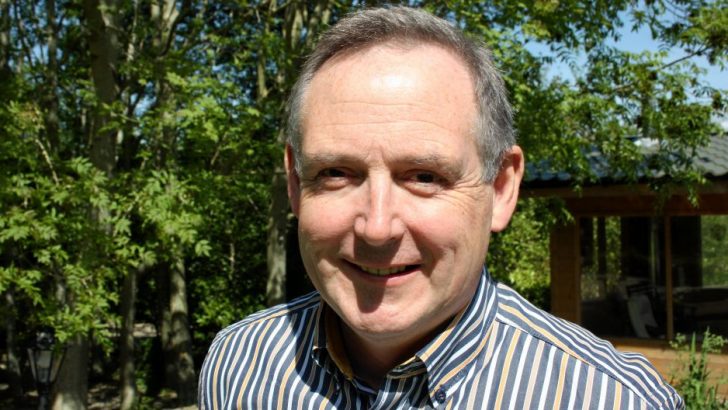Wellbeing programmes in Faith schools could do more to help protect students from mental health issues, a leading Irish theologian has said.
Tuam-based priest Prof. Eamonn Conway and Dr Kerry Greer of Limerick’s Mary Immaculate College have said that emerging resilience programmes in Irish schools lack a scientific basis, and that the notion of Christian hope has been largely ignored in this type of teaching.
In a paper entitled ‘The Commodification of Resilience: Rediscovering the Virtue of Christian Hope for a Troubled World’, the authors say that hope can contribute to developing resilience, and that overlooking this prospect encourages students to believe that religious faith is “irrelevant and superfluous”.
Challenges
“Clearly religious education has much to contribute to building resilience in young people and for those who are Christians, a relationship with God, a relationship with Christ with the companionship and promise that holds should be the ground on which they daily stand and enable them to respond to various challenges which are inevitably part of life,” Fr Conway told The Irish Catholic.
In the new Junior Cycle wellbeing programme, he added, religious education is afforded a “very marginal role” and only in so far that it contributes to human rights and social justice education, rather than how it invites people into a personal relationship with God.
He said that this practice has schooled people into believing that religion has “nothing to contribute” to building their resilience.
Echoing these sentiments, Bernadette Purcell, a chaplain at IT Tallaght, told this paper that for students, faith in God is like an “energy or power in their life” that allows them to navigate through difficulties they’re experiencing. She added that a spirituality of wellbeing is vital as Christian hope allows young people to realise that the present is only temporary and that there is a “future of possibilities” for them.
In light of this, Fr Conway is urging schools to reconsider their current wellbeing programmes following the rise tide of mental health challenges students are facing today, stressing that Christianity is not a product or a package but a person.
“I’m encouraging faith-based schools to evaluate critically the resilience programmes that are being rolled out, to evaluate them critically, and to see in what way they need to be complemented or substituted by programmes that reflect that characteristic sprit of those schools,” he said.
See Pages 31 & 33.Tuam-based priest Prof. Eamonn Conway and Dr Kerry Greer of Limerick’s Mary Immaculate College have said that emerging resilience programmes in Irish schools lack a scientific basis, and that the notion of Christian hope has been largely ignored in this type of teaching.
In a paper entitled ‘The Commodification of Resilience: Rediscovering the Virtue of Christian Hope for a Troubled World’, the authors say that hope can contribute to developing resilience, and that overlooking this prospect encourages students to believe that religious faith is “irrelevant and superfluous”.
Challenges
“Clearly religious education has much to contribute to building resilience in young people and for those who are Christians, a relationship with God, a relationship with Christ with the companionship and promise that holds should be the ground on which they daily stand and enable them to respond to various challenges which are inevitably part of life,” Fr Conway told The Irish Catholic.
In the new Junior Cycle wellbeing programme, he added, religious education is afforded a “very marginal role” and only in so far that it contributes to human rights and social justice education, rather than how it invites people into a personal relationship with God.
He said that this practice has schooled people into believing that religion has “nothing to contribute” to building their resilience.
Echoing these sentiments, Bernadette Purcell, a chaplain at IT Tallaght, told this paper that for students, faith in God is like an “energy or power in their life” that allows them to navigate through difficulties they’re experiencing. She added that a spirituality of wellbeing is vital as Christian hope allows young people to realise that the present is only temporary and that there is a “future of possibilities” for them.
In light of this, Fr Conway is urging schools to reconsider their current wellbeing programmes following the rise tide of mental health challenges students are facing today, stressing that Christianity is not a product or a package but a person.
“I’m encouraging faith-based schools to evaluate critically the resilience programmes that are being rolled out, to evaluate them critically, and to see in what way they need to be complemented or substituted by programmes that reflect that characteristic sprit of those schools,” he said.


 Colm Fitzpatrick
Colm Fitzpatrick Prof Eamonn Conway
Prof Eamonn Conway 